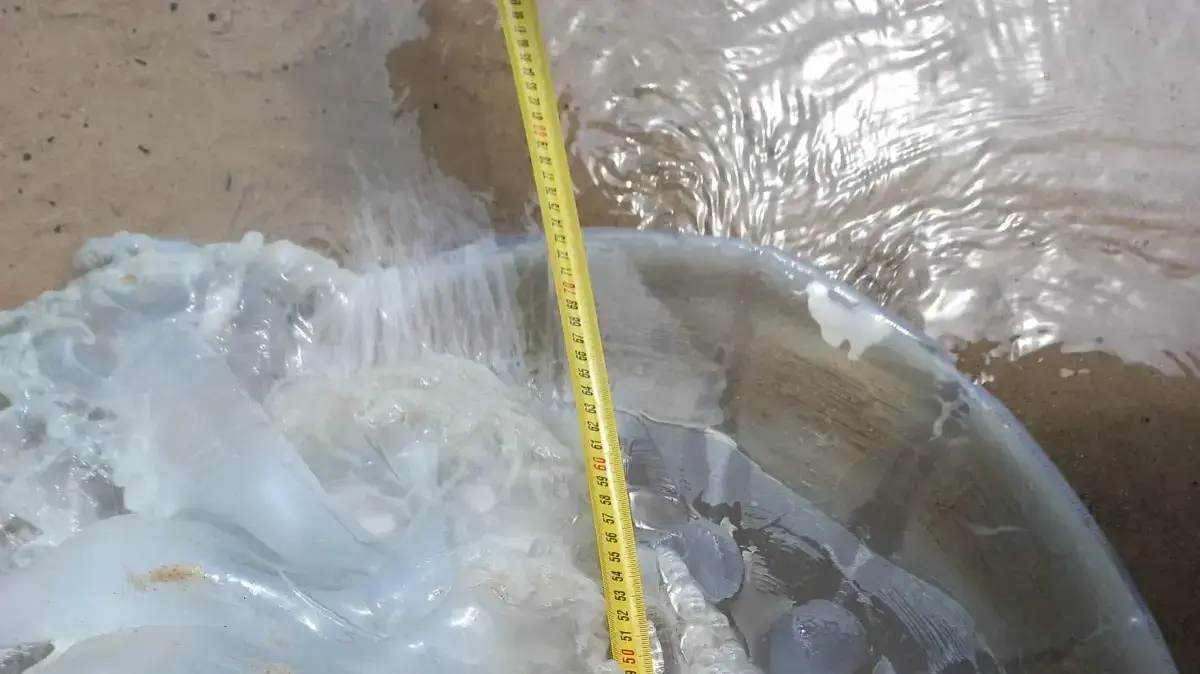In the Mediterranean: jellyfish plague on the rise - five species are highly toxic
Created: 08/03/2022 15:17
By: Jasmine Farah
Many holiday areas throughout Europe are currently suffering from jellyfish plagues.
You can find out here which species occur more frequently and which are even poisonous.
Amalfi Coast, Côte d'Azur and Mallorca: They not only have in common that they are popular vacation spots, but also that they are facing a big problem.
Because many tourists no longer dare to go to their beaches or into the water.
The reason for this is apparently tens of thousands of cnidarians that are currently spreading in the western Mediterranean.
This summer there should be so many that one even assumes a jellyfish plague.
In the Mediterranean: jellyfish plague on the rise
While some of them are harmless, others can be dangerous because they are considered highly toxic.
For this reason, as a precaution, entire sections of the beach are cordoned off, even in tourist areas.
Whether it's Italy, France or Croatia: According to marine biologist Cornelia Jaspers, we will see masses of jellyfish coming closer and closer to the Mediterranean coast more and more frequently in the coming years.
According to her, the main reason is climate change.
The luminous jellyfish is fascinating and at the same time the most dangerous species of its genus.
© Cavan Images/Imago
As the seas get warmer as a result, the cnidarians can reproduce and spread more easily, she explains to
Mitteldeutscher Rundfunk
(MDR).
In addition, the large amount of plastic waste that gets into the oceans and pollutes them provides shelter and a new habitat for the jellyfish.
In addition, overfishing of the seas eventually means there are fewer natural predators and less competition for cnidarian food sources.
The following species, which are increasingly found in the warm Mediterranean Sea, are particularly dangerous:
luminous jellyfish
jellyfish
compass jellyfish
Blue nettle jellyfish
Portuguese galley
On a beach vacation: This is what to do if you get a jellyfish sting
They all have in common that they have tentacles with stinging cells that can cause problems when touched.
If you come into contact with these and/or if residues stick to the skin, skin irritation, redness and itching can occur.
This is due to the poison contained in the nettle capsules.
In some cases, symptoms such as nausea, vomiting and headaches can occur.
If this is the case, it is advisable to consult a doctor immediately.
also read
Visit five fairytale places in Germany - with the 9-euro ticket
Mask requirement on the plane: Which airlines no longer apply and who still adheres to it
How humans pollute the environment
View photo gallery
Otherwise, as a precaution, you should rinse the affected area of skin with seawater after encountering a jellyfish.
Fresh water, on the other hand, is not recommended, as it is possible that stuck nettle capsules will burst.
With the result that the poison spreads further.
In the event of a jellyfish sting, it is also advisable to clean the wound with vinegar afterwards.
Finally, you should cool the wound with an ice pack or something similar, which relieves pain and itching.





